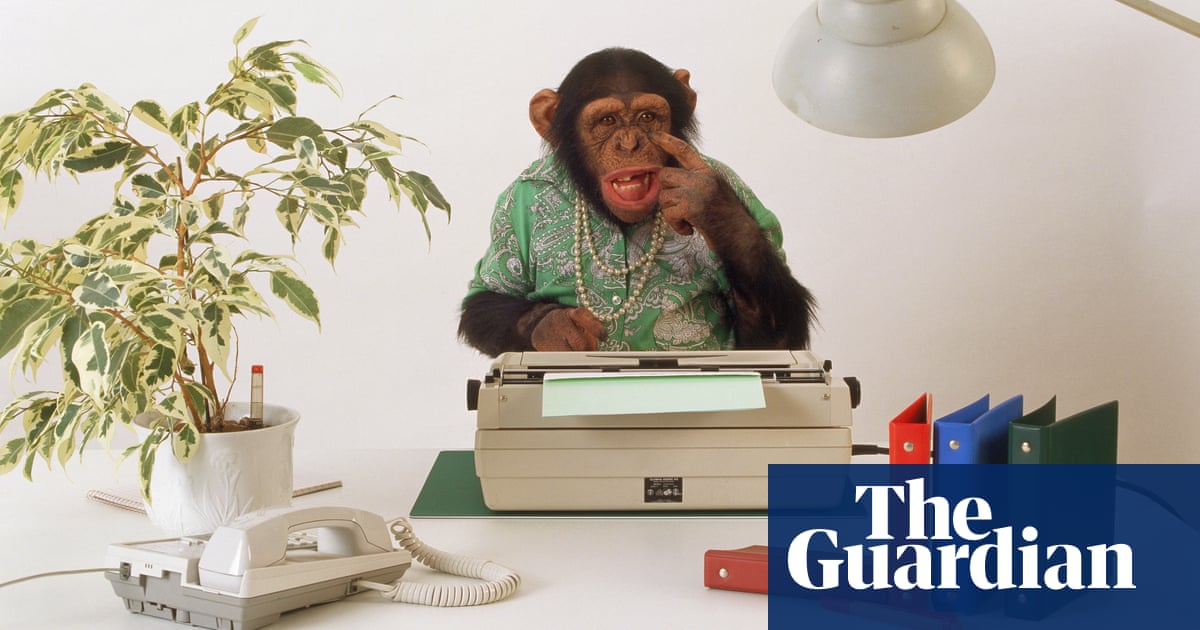Headline: Australian Mathematicians Debunk Infinite Monkey Theorem
The Infinite Monkey Debate: A Mathematical Examination
The whimsical notion that a monkey randomly typing on a keyboard could eventually produce the complete works of Shakespeare has been a staple in discussions on probability and infinity. However, a recent study by two Australian mathematicians challenges this familiar adage, positing that even if every chimpanzee on Earth typed for the entire lifespan of the universe, they would almost certainly never create the Bard’s literary repertoire. This investigation into the “infinite monkey theorem” not only redefines our understanding of chance but begs critical questions about randomness and creativity.
Who Are the Mathematicians Behind the Study?
Stephen Woodcock and his colleague from the University of Technology Sydney are at the forefront of this research. Their findings are outlined in a paper published in the journal Franklin Open, where they sought to explore the probabilities involved in the age-old thought experiment. By placing finite constraints on the typing activity, they aimed to illustrate the improbability of producing meaningful literary works through random keystrokes.
What Was the Experiment’s Methodology?
The mathematicians placed a hypothetical limit on their “monkey typists,” allowing them to type one character per second continuously for approximately 30 years. The experiment used a simplified keyboard consisting of 30 keys—representing the letters of the English alphabet alongside some common punctuation marks.
Their results were staggering: the time required for a single typing monkey to replicate even a small portion of Shakespeare’s canon would surpass the lifespan of the universe itself. As they estimate, the universe’s "heat death" could occur in around a googol years—a figure represented by 1 followed by 100 zeros.
In a particularly telling statistic, the study found that a single monkey would have only about a 5% chance of typing the word “bananas” within its lifetime, not to mention the intricacies involved in replicating any of Shakespeare’s 884,647 unique words.
The Chimpanzee Factor: More Monkeys, Still No Miracle
To expand their analysis, the researchers turned to chimpanzees, our closest living relatives. With a population of approximately 200,000 chimps on Earth, they assumed this number would remain constant over cosmic epochs. Despite having an enormous workforce, the statisticians concluded that even this staggering assembly was “not even like one in a million” in terms of successfully producing Shakespeare’s works.
“It’s a fun thought experiment, but if every atom in the universe was its own universe, it still wouldn’t happen,” Woodcock told New Scientist, emphasizing the mind-boggling improbability.
Implications Beyond the Classroom
The findings prompt profound implications, not only for understanding probability but also for our ideas surrounding creativity and the nature of written works. In essence, the study suggests that even in the face of infinite time, the randomness associated with typing monkeys is not a feasible method for generating literary masterpieces, limiting its applicability in serious contexts.
This viewpoint distinguishes the trivial from the tremendous, demonstrating that perhaps more structure and intention are needed in creating complex narratives. The study serves as a reminder that art and literature are products of careful thought, experience, and human connectivity, rather than mere accidents of chance.
Previous Attempts and Their Outcomes
Interestingly, this isn’t the first foray into exploring the infinite monkey theorem. A previous trial involving six Sulawesi crested macaque monkeys typing on a computer for four weeks yielded just five pages of text. Not unexpectedly, the typing activity primarily consisted of repetitions of the letter “S.”
Such experiments illuminate the significant gap between random typing and the coherent expression seen in literature, emphasizing the importance of intention in creative endeavors.
Final Thoughts
With the findings revealing a staggering improbability in the notion of monkeys crafting Shakespearean works, the study reignites discussions about creativity, chance, and how we can better direct our efforts toward meaningful artistic expression. As technology enthusiasts and professionals reflect on this research, it calls into question how randomness can be studied and understood in various fields, including artificial intelligence, creative writing software, and more.
Do you think the findings align with your understanding of randomness and creativity? Join the conversation and share your thoughts in the comments below. For further exploration into fascinating topics related to mathematics and creativity, check out more articles on Shorty-News and authoritative sources like TechCrunch, The Verge, and Wired.
This article is not only a departure from conventional discourse surrounding the infinite monkey theorem, but it also poses reflective questions on the intersection of mathematics, creativity, and technology. As conversations about the future of literature and AI gather momentum, studies like Woodcock’s serve as essential touchpoints for ongoing dialogue.

